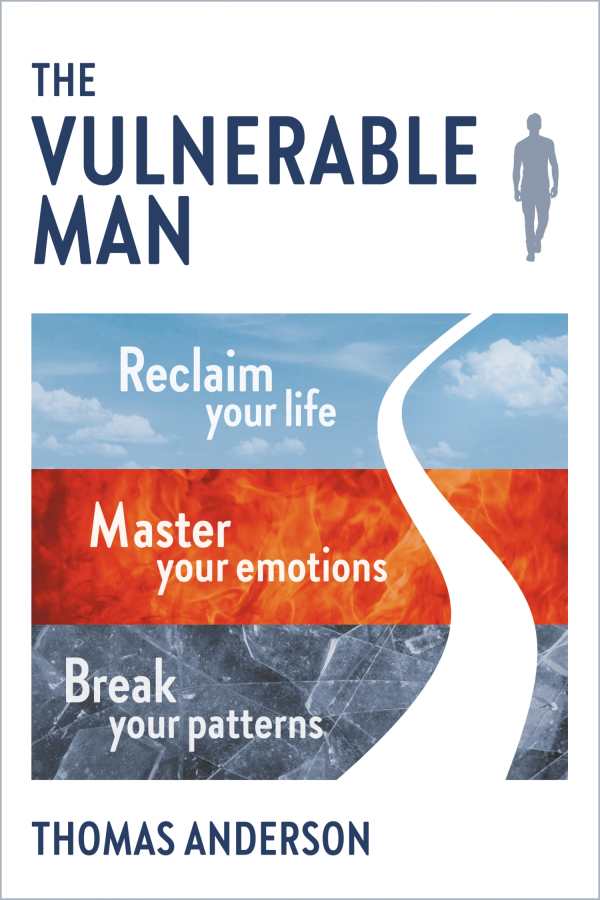The Vulnerable Man
Break Your Patterns. Master Your Emotions. Reclaim Your Life.
Intimate and informal, The Vulnerable Man is an inviting book that encourages the healthy confrontation of emotions.
Thomas Anderson’s empathetic book The Vulnerable Man uses journal entries to illustrate regulating emotions in order to achieve self-improvement.
At one point, Anderson seemed to have it all, including a lucrative career, a loving family, and a circle of supportive friends. Internally, however, self-doubt and anxiety sent him spiraling. His attempts to provide for his family, excel at work, and maintain friendships drained him. At the edge of burning out, he realized that he needed to change. He learned about what it means to be a highly sensitive person and began self-evaluating, regulating his emotions, healing from his past, and centering himself for challenges. This book draws on those experiences to suggest self-help methods for others, too.
Made up of journal entries written across a three-year period, this is an experience-based book that shares lessons for others––in particular, for men who also repress their emotions. The entries’ personal thoughts and reflections reveal Anderson’s own process of recovery well, featuring his outcomes in order to impart concrete understanding about what worked for him. The journal entries are followed by reflections, a workbook section, and concluding chapter. The most generally useful information comes in the book’s workbook section, where the book’s examples and concepts are summarized and expanded upon with questions posed to the audience.
Among the book’s helpful recommendations is an encouragement to open up to others, instead of suffering in silence. In support of this, Anderson shows how communicating with a close friend initiated a feedback cycle that resulted in a noticeable uptick in his happiness, and that improved his relationships with others. However, many of the entries are passive in tone; though they reach to be instructive, they often avoid naming specific methods for others to follow.
The book asserts that ignoring one’s emotions damages one’s emotional well-being, and that the consequences of this bleed into all aspects of a life. Not all of the book’s personal details are critical to understanding this central thesis, though; some, as of highly sensitive individuals, don’t seem to support its conclusions. Ultimately, because the book does not move far beyond its focus on an individual’s experience, its self-help applications are limited to those with similar experiences. Only its encouragements to understand one’s emotional state, and to develop tools to help with overcoming personal obstacles, stand to be beneficial to many.
Intimate and informal, The Vulnerable Man is an inviting book that uses a personal story to push others to confront their emotions in a healthy manner, too.
Reviewed by
John M. Murray
Disclosure: This article is not an endorsement, but a review. The publisher of this book provided free copies of the book and paid a small fee to have their book reviewed by a professional reviewer. Foreword Reviews and Clarion Reviews make no guarantee that the publisher will receive a positive review. Foreword Magazine, Inc. is disclosing this in accordance with the Federal Trade Commission’s 16 CFR, Part 255.

